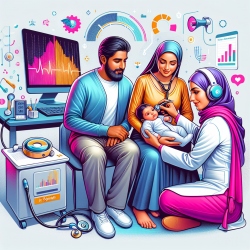Introduction
In the realm of healthcare, the integration of multidisciplinary approaches has shown promising results, particularly in managing rare and chronic conditions. The research article "Integrated Hemophilia Patient Care via a National Network of Care Centers in the United States: A Model for Rare Coagulation Disorders" provides a compelling case for integrated care models. This blog explores how practitioners can enhance their skills and improve patient outcomes by adopting such models, with a focus on the Hemophilia Treatment Centers (HTCs) as a benchmark for success.
The Power of Integrated Care
Integrated care is a holistic approach that involves coordinating various healthcare services to address the comprehensive needs of patients. In the case of Hemophilia Treatment Centers, this model has been instrumental in reducing morbidity and mortality while improving the quality of life for patients. By bringing together specialists from different fields, HTCs provide a seamless continuum of care that addresses the physical, psychosocial, and emotional needs of patients.
Implementing Integrated Care in Practice
For practitioners looking to enhance their skills, adopting an integrated care model involves several key components:
- Multidisciplinary Teams: Assemble a team of specialists, including hematologists, nurses, social workers, and physical therapists, to provide comprehensive care.
- Shared Decision-Making: Engage patients and their families in the decision-making process to tailor care plans to individual needs.
- Data-Driven Approaches: Utilize data to monitor patient outcomes and adjust treatment plans accordingly.
- Patient-Centered Care: Focus on the holistic well-being of patients, addressing not just medical needs but also psychosocial support.
Encouraging Further Research
The success of HTCs highlights the importance of ongoing research and adaptation in healthcare practices. Practitioners are encouraged to delve deeper into the data and methodologies presented in the research to explore how these can be adapted to other rare and chronic conditions. By fostering a culture of continuous learning and improvement, healthcare providers can ensure that they are delivering the best possible outcomes for their patients.
Conclusion
Integrated care models, as exemplified by the Hemophilia Treatment Centers, offer a robust framework for improving patient outcomes in complex conditions. By embracing multidisciplinary approaches, shared decision-making, and data-driven practices, practitioners can significantly enhance the quality of care they provide. For those interested in further exploring the methodologies and outcomes of integrated care, the original research paper offers a wealth of insights and data.
To read the original research paper, please follow this link: Integrated Hemophilia Patient Care via a National Network of Care Centers in the United States: A Model for Rare Coagulation Disorders.










